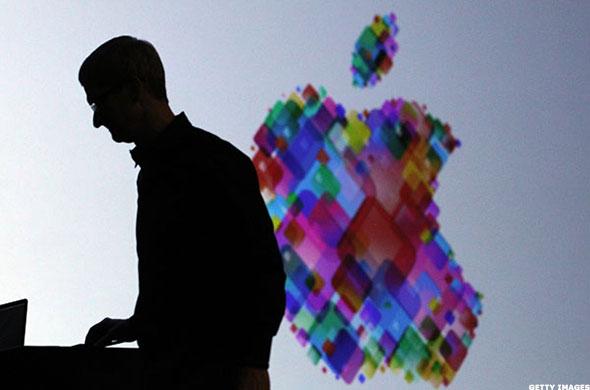Five things to look out for which will indicate the strength – or imminent downturn – of the US economic boom
Whether or not Apple will become the world’s first trillion dollar company may seem arbitrary, but could have a real impact on the markets


Your support helps us to tell the story
From reproductive rights to climate change to Big Tech, The Independent is on the ground when the story is developing. Whether it's investigating the financials of Elon Musk's pro-Trump PAC or producing our latest documentary, 'The A Word', which shines a light on the American women fighting for reproductive rights, we know how important it is to parse out the facts from the messaging.
At such a critical moment in US history, we need reporters on the ground. Your donation allows us to keep sending journalists to speak to both sides of the story.
The Independent is trusted by Americans across the entire political spectrum. And unlike many other quality news outlets, we choose not to lock Americans out of our reporting and analysis with paywalls. We believe quality journalism should be available to everyone, paid for by those who can afford it.
Your support makes all the difference.The dollar is back in fashion, and some. After a wobbly first quarter it has climbed some 6 per cent, regaining all the ground lost. US shares, too, have gone up decently, with Apple – now the most valuable company in the world – close to the all-time high it reached a few days ago. And this has happened despite the Federal Reserve indicating that it will carry on increasing interest rates, and the 10-year US Treasury bond yield topping 3 per cent. It is a boom, and we do not need the president to remind us of that. But booms come to an end. My feeling is that the forthcoming downturn is still some way away, but I am intrigued by the wacky, unpredictable nature of this boom and things to look for that will tell us about its future.
There is, for a start, the race to become the world’s first trillion dollar company. It does very much look like it will be Apple, worth $916bn (£680bn) on Friday, but chasing it are three other tech enterprises in the three-quarter-billion club: Amazon, Alphabet (the parent company of Google) and Microsoft. All were worth between $740bn and $765bn on Friday.
When looking for market turning points there is usually some signalling event. Since the US share market is very much a tech-driven one, unlike the UK market which is heavy on natural resources and finance, the price of Apple might well give such a signal. It is irrational to see the trillion as the magic number signalling a downturn, but markets are not rational. The turn in equities usually comes 18 months or so before the turn in the real economy, so the R-word, recession, is still some way off.
Next, there is the oil price. Oil is always fascinating, because it is both a function of economic activity and a determinant of it. A rise in the price signals some mix of solid demand and constraints (maybe technical, maybe political) on supply. True, the price is not as absolutely central to the world economy as it was 10 or more years ago, but it still matters a lot. So oil at $100 a barrel? Not impossible at all. The question then will be who benefits and who is hit. Actually the US, with Canada and Norway, are the biggest beneficiaries. In relative, though not absolute, terms the UK does quite well.
Higher-priced oil may turn out to be part of a wider raw material price boom. On its own oil is unlikely to derail the world economy. As part of a general commodity boom it would be destabilising. There are signs of a rethink of the fundamental values of raw materials in recent weeks, though as yet agricultural raw materials have yet to benefit much. Rare minerals which have special uses, including iridium and rhodium, have shot up but there are particular reasons for that.
The other set of indicators to look at are the hard data that tells us about US economic activity and people’s spending habits. For example. I’m interested in how many passengers are passing through US airports (pretty strong), and new cars sales (pretty weak) both of which are hard numbers rather than responses to sample surveys.
Finally, there will be the success or otherwise of the US trade offensive. Right now it looks pretty effective, with China promising to buy more goods from America, and Steven Mnuchin, the treasury secretary, saying that tariffs had been put “on hold”. It is a different way of doing things and one that I find troubling. But right now it looks effective and we should recognise that. Bottom line: will a global trade war be the thing that ends this expansion? Probably not.
Join our commenting forum
Join thought-provoking conversations, follow other Independent readers and see their replies
Comments